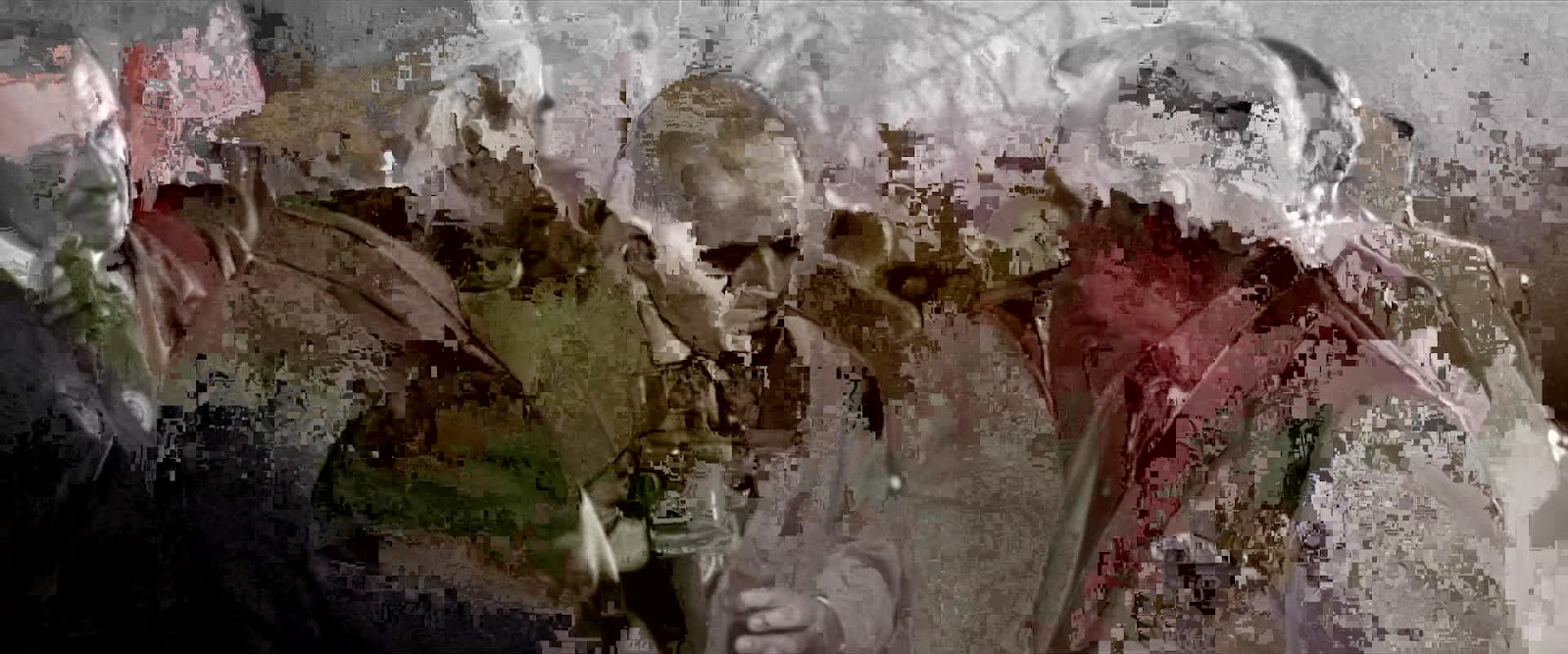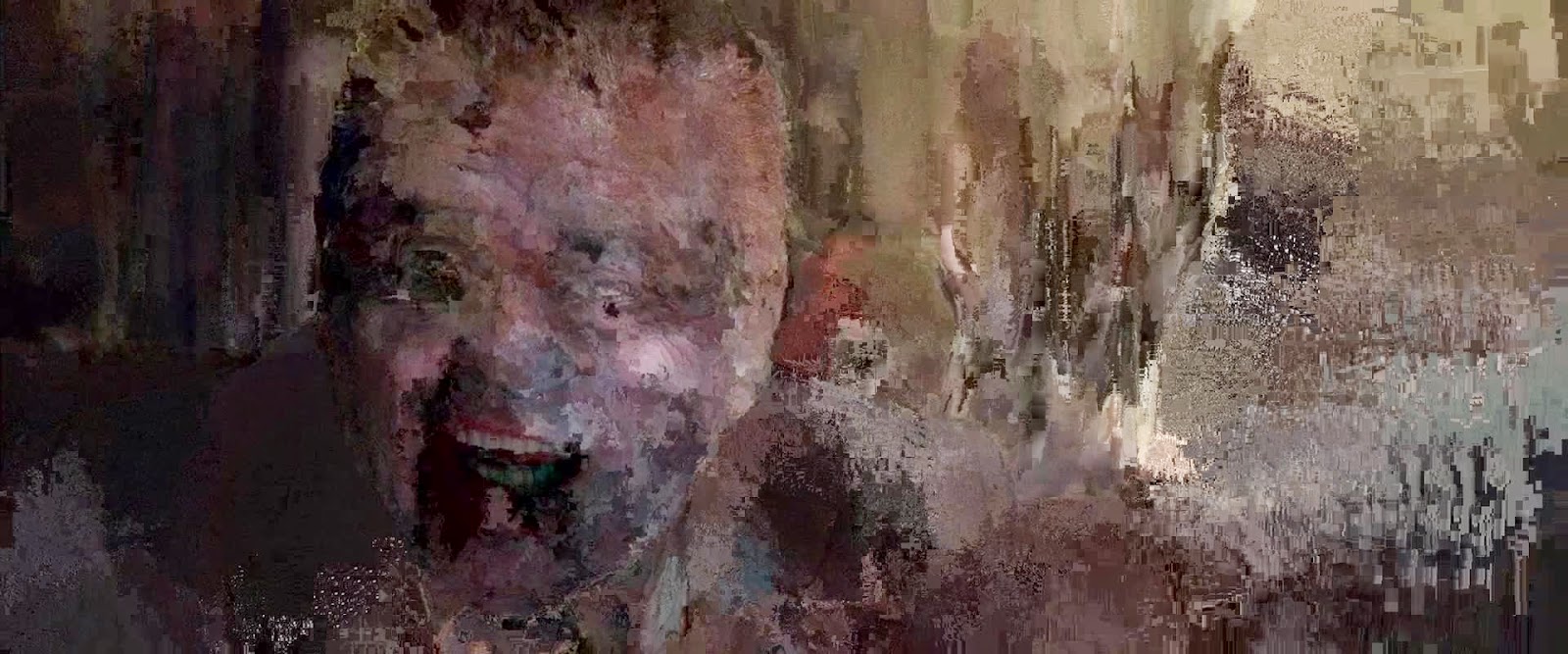The following is a survey of the films we find most representative of the greatness of the cinematic medium since 2010. The decade is just about half over and this is our attempt to figure out what the landscape looks like right now. So everyone has picked a film they loved and talked about its important. What these movies say about the world we live, what we see in them that we want other movies to aspire to.
Scout Tafoya
Noah Aust
Because I’m jaded and desensitized to movies. I can’t suspend my disbelief—and do I even want to? I’ve read Laura Mulvey and Brecht and is mimesis even good? Or is it just escapism/bread and circuses? Is catharsis good, or does it just satiate us so we don’t challenge the status quo? Freshman year I was fascinated by mumblecore. Joe Swanberg stripped away all the excesses of filmmaking—plot, camerawork, production values, acting, dialogue—but his movies were still powerful. By getting rid of everything that I thought made a movie, Swanberg got to the heart of what a movie really was. Or could be, anyway.
Holy Motors does the same thing from the opposite direction. There’s no suspension of disbelief. There’s no character development—no characters, really. There’s no narrative continuity. And it still works. The musical sequence is totally self-aware but it’s still tragic and moving, somehow. But tragic and moving in a way I can connect to. Tonight I saw The Immigrant and I loved it, it was beautiful and heartbreaking and melodramatic and tragic, but how am I supposed to connect to that? There’s nothing ugly or ironic or cynical in the world of that movie. How am I supposed to reconcile that with my life? I’m so cynical and jaded and I think that was keeping me from totally entering the world of the film. Whereas with Holy Motors, it’s understood that you’re jaded. It’s understood that you can’t fully commit to the reality of the story, and no one’s asking you to.
I read something a while back about how Georges Méliès never really went for suspension of disbelief in his movies. People draw a binary between him and the Lumière brothers, with them advocating realism and him advocating escapism, but it’s not that cut and dry. This writer called Méliès’ films “montages of attractions,” and to me Holy Motors went back to that. Holy Motors is so cinematic. It’s Cinema with a capital C. It’s like Léos Carax asked himself what Cinema is, what it feels like, and then compiled scenes that illustrate that. If an alien asked what movies were about, I’d show them Holy Motors. When the beggar is running through the cemetery and the Godzilla theme song comes on, there’s no reason why that should have conjured such a profound feeling in me, but it did. The movie is beautiful. That scene at the very beginning with the forest wallpaper? Oh my god, that’s beautiful. It’s like they took out everything I don’t care about in a movie and just left the music and the images and the moods.
There’s also something that I can’t quite put my finger on... something about the end of film and digital cinema. I get so depressed about that stuff. Holy Motors felt like a requiem, a summing up of everything that film meant. Film is more than just a medium, it’s Cinema, it’s Melodrama, it’s Ingrid Bergman, it’s La Strada, it’s something tangible and mechanical that you watch in a theater. It’s bourgeoisie and decadent and so it’s doomed to die, but it’s beautiful. But maybe Holy Motors is also a map for how to go forward. Because it’s self-aware and digital and it still packs a punch. Léos Carax finds poetry in digital tracking markers. Just like Joe Swanberg found power in cold, sterile video, Carax finds beauty in deconstruction and self-awareness.
Once at Boston Underground I saw a video mixtape from the Whore Church: an overwhelming ADD onslaught of trash videos and pornos cut together at subliminal speeds. Really terrible stuff. But I was watching it and I was really struck by the vocabulary and style of it. I remember thinking, “This is new. If artists want to keep moving forward, they’re going to have to find the power in this stuff.” Then I saw M Dot Strange’s film We Are The Strange. He draws from trashy digital vocabularies: anime, 8-bit video games, 4chan stuff, but he uses that iconography to tell a really haunting story about trying to live in a world gone mad. It’s legitimate melodrama told in a contemporary style. A movie like that can reach people on a level that traditional melodrama can’t. A movie like The Immigrant can synch up perfectly with a certain kind of person, but for film students that are jaded and desensitized and filled with this buzzing anxiety, they need a movie that recognizes that and takes that into the equation. It’s like a different level of semiotics. I want movies that say "even with real life in its awkwardness and ugliness, it’s still possible for life to be beautiful and important like in the movies." I feel like melodrama is a really important aspect of human nature, and maybe it’s the most important part of cinema. I want movies like Holy Motors that say “Even when you’ve lost all suspension of disbelief, movies can still be beautiful.”
Tucker Johnson
I’m actually fairly surprised I landed on this film as the best but then I realized that out of all my possible choices I come back to this one the most. I own a fair few of my choices and I’ve definitely carved the deepest path in my copy ofThe Social Network. Aaron Sorkin’s screenplay took a revolutionary true story and turned it into an arguably even more interesting piece of fiction that paints the facts of Mark Zuckerberg’s rise to being the youngest billionaire of all time with broad strokes and spends far more of its time in the trenches of exactly what people will do to each other when unbridled success is waiting in the wings. He even manages to squeeze sympathy out of audiences for Jesse Eisenberg’s character by showing that despite the juggernaut that Facebook became, it was still driven by the very human needs to succeed, to impress, and to inspire forgiveness in those we care about most. But even with Sorkin churning out arguably the best screenplay of his career, the material needed a director who could handle the dialogue and work the actors hard enough to deliver it with the verve and emotion it deserved. Enter: David Fincher.
I’m definitely biased towards David Fincher. I consider the man a master of filmmaking at this point in his career but even I remember being very wary of him taking on “the Facebook movie” early in the film’s production. I saw the film in a theater packed with an audience that was more likely expecting the kind of film that the Ashton Kutcher movie Jobs ended up being. I spent the film’s two-hour runtime in awe of Fincher’s crisp, dark visual style (aided by Jeff Cronenweth’s realistic yet beautiful cinematography) and his total control over some of the best young actors working today. He had a firm handle on Sorkin’s dialogue but still managed to direct performances that sounded like intelligent people talking rather than actors simply reading movie dialogue. All this combined with Trent Reznor and Atticus Ross’ eerie ambient score propels the film into a place that I think films rarely get to go.
Michelle Siracusa
Lucas Mangum
I'm going with The Dark Knight Rises. I'm a sucker for a good hero story, especially when the hero has to really descend before he triumphs. I also like how the ending seems upbeat (I, for one, have always wanted a Bat/Cat romance), but also carries some ambiguity. Is he really alive, or is Alfred dreaming? It came out in the same summer as The Avengers, which I loved. They had similar plots, but the Batman film felt like The Avengers' evil twin. So much bleaker.
Tim Earle
Films face a crisis these days. Home entertainment systems are high enough quality, and downloading films is easier and easier. Meanwhile, television has quietly become the preferred medium of talented, forward thinking storytellers. The Avengers is, for better or worse, the solution to this crisis. I like the film - it’s surprisingly well written for a big budget slug fest - but more than anything, I admire what it represents, in terms of historical precedent. The film is a demonstration of film learning from TV. It’s a deeply serialized story that requires an understanding of what’s happening in a previously established world. Like the Lord of the Rings series, it is a film for fans. A film for people who have maps of places that don’t exist. A film for people who like watching impossible universes built and populated with impossible people. Unlike Lord of the Rings though, its storytelling possibilities are limitless. It is the first step in a long, potentially endless story. Of course, there are dangers in making a movie franchise like this. The biggest one is that I worry studios have gotten the impression that to make real money you need bloated franchises with lots of people punching each other. What The Avengers should be teaching us is that the talking is far more important than the punching. And it is a deeply corporate entity; it’s inseparability from other films and TV is just as much a boon to its storytelling as its inseparability from toys and lunchboxes is a hindrance. But what really knocks this film out of the park for me is that the great technicians of film, George Lucas and James Cameron, have finally been dethroned by the writers. Also, “Mewling quim.”
Noah Adrien Lyons
Scout Tafoya
For the last few years Robert Greene has written a column on the continuing progress of cinematic non-fiction over at Hammer-to-Nail. Greene's been on the front lines, trying to talk people down from their anti-documentary bias and America's tendency to laud movies content to give you information with all the tact and grace of an infomercial. Meanwhile he's championed groundbreaking oddities like Leviathan, The Act of Killing and even line-riders like Computer Chess. More than any kind of film, what Greene pursues over everything is the truth, and that is bigger than just facts told you to be a guy in a room. The truth sometimes bypasses your brain and heads right to your guts and it's impossible to ignore. Greene's own films are an extension of his search for a better, more enlightened conversation about nonfiction, and they're like nothing you've ever seen. For the last decade-and-a-half American indie fiction has been searching for the language that Greene finally found in his second film Kati with an I, about his cousin's heartbreaking final days as a high school student. He returned a year later with Fake It So Real about the characters in a non-professional wrestling circuit. And now he's a month away from seeing his latest film, Actress, play theatres across the country. Which is good news for everyone who wants to know how close to perfect the modern non-fiction film has yet come.
I toyed with writing this about any number of mind-blowing 'documentaries' including Manakamana, Miners' Hymns, Patience (After Sebald), Leviathan, Perhaps Beauty Has Strengthened Our Resolve, Two Years At Sea or Whores Glory or even Computer Chess and Under The Skin, but ten minutes into Actress I knew ita was special even in that rarified company. Actress follows Brandy Burre, who took a few years off from her career to have children, getting back into the world of auditions and performing. Burre is a sparky, vivacious person and a loving mother. Like any of us she has flaws that hurt her relationships, and every one of them complicates what we thought we knew about her. Filmmakers try and fail to write characters like her every day. Greene's there at every crucial juncture in Burre's life over many months including her efforts to deal with several changes to her life and daily routine, most of which she's placed there herself. She talks to Greene and the audience as if we were all sitting in her kitchen, sharing a drink with her after her kids have settled down for the night. There's immediacy and honesty, and then there's a woman pouring herself a glass of wine and telling us when she fell out of love with the father of her children. Greene's always found humanity where others would have found mere objects or figureheads, and Actress hums and shakes with it. Burre's the first of his characters who's middle aged and has a sense of her legacy and her place in the world and watching her contemplate them is impossibly compelling. Greene provides a slow-motion playback of the moments just before everything came off the rails, using little else but what Burre surrounds herself with day after day. It's gripping, but more importantly, it's fucking cinematic.
Greene places himself where few others would dare to venture, her private rehearsals, curlers still in her hair, in the shower after one of the most taxing days of her life. He's not recording because it has anything to do with her life as a series of facts, but because he's telling her story the only way he knows how, with the language of dramatic filmmaking. A standard doc about the life of a struggling actress would be answering questions left and right, squeezing every inch of drama from her nerves, getting between the audience and the subject. Greene hangs back, no agenda, no judgment, letting Burre tell her own story through gestures on her own time. One of the film's best moments has her driving to meet someone listening to Colin Blunstone's "Let Me Come Closer To You," which has more thematic resonance than she or Greene could ever have known when the moment occurred, as Burre just drives to a train station. She's deep in thought and we only later know what's going on in her troubled mind. Then the song continues as the film jumps through her evening, but it remains the recording from the car stereo. Greene always keeps rough edges and in so doing the making of a modern documentary becomes the subtext, the third party to everyone of his character studies. You would never mistake Actress for conventional (and what greater tragedy is there then a film this heartbreaking looking like a mutation next to most distributed docs?), least of all because in spending time with a woman reliving and restarting the part of her life where she pretends to be someone else, we find the perfect encapsulation of Greene's pursuit. A headlong dive into the space between cinematic reality, life and fiction. Who is Brandy Burre? Is she her job, her family, her flaws, her characters, her hopes or fears? Greene never makes us choose because Burre herself doesn't have to. She's not a character in a movie, she's a person fighting to make sure tomorrow's better. Actress is the non-fiction film of the decade, a gauntlet thrown at anyone looking to tell the truth with a camera. Cinema, like Burre, is staring into its future. "This is what I wanted...but now I have to do it."
Noah Aust
Because I’m jaded and desensitized to movies. I can’t suspend my disbelief—and do I even want to? I’ve read Laura Mulvey and Brecht and is mimesis even good? Or is it just escapism/bread and circuses? Is catharsis good, or does it just satiate us so we don’t challenge the status quo? Freshman year I was fascinated by mumblecore. Joe Swanberg stripped away all the excesses of filmmaking—plot, camerawork, production values, acting, dialogue—but his movies were still powerful. By getting rid of everything that I thought made a movie, Swanberg got to the heart of what a movie really was. Or could be, anyway.
Holy Motors does the same thing from the opposite direction. There’s no suspension of disbelief. There’s no character development—no characters, really. There’s no narrative continuity. And it still works. The musical sequence is totally self-aware but it’s still tragic and moving, somehow. But tragic and moving in a way I can connect to. Tonight I saw The Immigrant and I loved it, it was beautiful and heartbreaking and melodramatic and tragic, but how am I supposed to connect to that? There’s nothing ugly or ironic or cynical in the world of that movie. How am I supposed to reconcile that with my life? I’m so cynical and jaded and I think that was keeping me from totally entering the world of the film. Whereas with Holy Motors, it’s understood that you’re jaded. It’s understood that you can’t fully commit to the reality of the story, and no one’s asking you to.
I read something a while back about how Georges Méliès never really went for suspension of disbelief in his movies. People draw a binary between him and the Lumière brothers, with them advocating realism and him advocating escapism, but it’s not that cut and dry. This writer called Méliès’ films “montages of attractions,” and to me Holy Motors went back to that. Holy Motors is so cinematic. It’s Cinema with a capital C. It’s like Léos Carax asked himself what Cinema is, what it feels like, and then compiled scenes that illustrate that. If an alien asked what movies were about, I’d show them Holy Motors. When the beggar is running through the cemetery and the Godzilla theme song comes on, there’s no reason why that should have conjured such a profound feeling in me, but it did. The movie is beautiful. That scene at the very beginning with the forest wallpaper? Oh my god, that’s beautiful. It’s like they took out everything I don’t care about in a movie and just left the music and the images and the moods.
There’s also something that I can’t quite put my finger on... something about the end of film and digital cinema. I get so depressed about that stuff. Holy Motors felt like a requiem, a summing up of everything that film meant. Film is more than just a medium, it’s Cinema, it’s Melodrama, it’s Ingrid Bergman, it’s La Strada, it’s something tangible and mechanical that you watch in a theater. It’s bourgeoisie and decadent and so it’s doomed to die, but it’s beautiful. But maybe Holy Motors is also a map for how to go forward. Because it’s self-aware and digital and it still packs a punch. Léos Carax finds poetry in digital tracking markers. Just like Joe Swanberg found power in cold, sterile video, Carax finds beauty in deconstruction and self-awareness.
Once at Boston Underground I saw a video mixtape from the Whore Church: an overwhelming ADD onslaught of trash videos and pornos cut together at subliminal speeds. Really terrible stuff. But I was watching it and I was really struck by the vocabulary and style of it. I remember thinking, “This is new. If artists want to keep moving forward, they’re going to have to find the power in this stuff.” Then I saw M Dot Strange’s film We Are The Strange. He draws from trashy digital vocabularies: anime, 8-bit video games, 4chan stuff, but he uses that iconography to tell a really haunting story about trying to live in a world gone mad. It’s legitimate melodrama told in a contemporary style. A movie like that can reach people on a level that traditional melodrama can’t. A movie like The Immigrant can synch up perfectly with a certain kind of person, but for film students that are jaded and desensitized and filled with this buzzing anxiety, they need a movie that recognizes that and takes that into the equation. It’s like a different level of semiotics. I want movies that say "even with real life in its awkwardness and ugliness, it’s still possible for life to be beautiful and important like in the movies." I feel like melodrama is a really important aspect of human nature, and maybe it’s the most important part of cinema. I want movies like Holy Motors that say “Even when you’ve lost all suspension of disbelief, movies can still be beautiful.”
Tucker Johnson
I’m actually fairly surprised I landed on this film as the best but then I realized that out of all my possible choices I come back to this one the most. I own a fair few of my choices and I’ve definitely carved the deepest path in my copy ofThe Social Network. Aaron Sorkin’s screenplay took a revolutionary true story and turned it into an arguably even more interesting piece of fiction that paints the facts of Mark Zuckerberg’s rise to being the youngest billionaire of all time with broad strokes and spends far more of its time in the trenches of exactly what people will do to each other when unbridled success is waiting in the wings. He even manages to squeeze sympathy out of audiences for Jesse Eisenberg’s character by showing that despite the juggernaut that Facebook became, it was still driven by the very human needs to succeed, to impress, and to inspire forgiveness in those we care about most. But even with Sorkin churning out arguably the best screenplay of his career, the material needed a director who could handle the dialogue and work the actors hard enough to deliver it with the verve and emotion it deserved. Enter: David Fincher.
I’m definitely biased towards David Fincher. I consider the man a master of filmmaking at this point in his career but even I remember being very wary of him taking on “the Facebook movie” early in the film’s production. I saw the film in a theater packed with an audience that was more likely expecting the kind of film that the Ashton Kutcher movie Jobs ended up being. I spent the film’s two-hour runtime in awe of Fincher’s crisp, dark visual style (aided by Jeff Cronenweth’s realistic yet beautiful cinematography) and his total control over some of the best young actors working today. He had a firm handle on Sorkin’s dialogue but still managed to direct performances that sounded like intelligent people talking rather than actors simply reading movie dialogue. All this combined with Trent Reznor and Atticus Ross’ eerie ambient score propels the film into a place that I think films rarely get to go.
Michelle Siracusa
From the start, something is not quite right. You are thrown all the makings of a horror story, down to ink drops that spatter like blood behind a title that's haphazardly scrawled across the screen. Stokersputters like a volcano and stops just in time for the birds to resume their chirping. But every now and then the earth beneath us shudders again. The pressure builds: a hint of violence, of the macabre here and there. And all we have to do is sit back and wait: wait for something to surface, wait for the monster to be revealed.
It's the suspense of not knowing what route a story might take that keeps us excited and engaged, but lately, I find this can be a movie's downfall. There are too many clues, sometimes characters even stating the circumstances outright. Why tell me what you're doing when you can show me? The point of film is to be able to see a story unfold, right? Unfortunately, most movies these days can be deciphered long before the story comes to fruition. And that's the "good movies". The bad ones don't even have plots to hint at. Oftentimes, I end up paying New York City's $14 ticket price to ogle Hollywood's sexiest men and women for two hours. They hop around a green screen saying words to each other that don't mean anything in tight outfits. Don't get me wrong, this is a spectacle all it's own, but I don't consider it art. How can it be when I'm not changed by it? My eyes are just darting back and forth, convincing my mind it's being entertained. For people like me, who are hungry for a good story, who crave something that will shake their souls and rattle their brains, I suggest you watch Stoker.
From the start, something is not quite right. A father has just died. And we are introduced to a mourning family that seems a little too put together for the circumstances. We never see them cry, but that's not what makes them stand out from the rest of the humdrum denizens that populate their town. The mother (Nicole Kidman) always appears freshly hair-sprayed and doll-like, overdressed and made-up. She makes cheery and careful small talk with fellow family and guests at the funeral reception. Here, we meet an estranged uncle (Matthew Goode). Too charming and too cool, he tells stories of having traveled the world, which is his apology for not being a present member of the family until the death of his brother. He wants to turn that all around, and everyone smiles and accepts him without question. After that all talk of the beloved late father is hushed. The mother invites the uncle to stay with her and her daughter, India (Mia Wasikowska). And the family is once again a man, a woman, and a child. From the outside, they would appear perfect, if no one knew the circumstances. This is a lovely theme that Stoker puts in place early on exploring appearances versus reality and the external versus the internal. The house is pristine, but the basement is shadowed, cob-webbed, and damp. Some people are beautiful to look at, but it doesn't mean they're beautiful to be around.
India is ivory skinned and forever curious, as young people are. She's an oddball at school, perhaps because of her sullen and quiet nature or her prim and studious demeanor. But that isn't the only reason why she's "different". She is also the only one who refuses to smile for the sake of appearances, the only one who has never gotten alone with her mother, and the only one questioning her Uncle's presence. She stands out from her family just as much as her family stands out from the rest of the town. Stoker is a coming of age tale, told through India's perspective. At moments, poetic voiceover and brilliantly composed shots show what her eyes would see or what her ears would hear. We are with her, in her head, catching glimpses of private conversations and tense moments between the other characters through cracked doors and open windows. They are all pieces of a puzzle, lava beginning to boil. And the more India learns about who to trust and who to not, the more we do as well.
There's not evidence of foul play. There's no crime. In fact, everything's peachy, but we still don't know why the father died. No one's asking. Everyone's eating ice cream or being picked on by the school bully like normal, until suddenly we catch a glimpse of a body stored in the freezer. The pressure is building. Sometimes characters stare a bit too long, unblinking, and we're reminded, something is not quite right. An explosion is imminent. The film begins with India as a young as can be, climbing trees and running through leagues of grass without a care in the world, other than finding that year's hidden birthday present. But suddenly , everything changes for her. Her father's death and her uncle's appearance become a catalyst for her growing up. We watch her trying to discover who she is and trying to find independence while dealing with her new family and their new rules. We learn that she was only ever close to her father, and, now, without her instructor and protector, she must learn to fend for herself.
We are all that child, or we have been. We've been derailed and insecure, needing something more to feel whole. We know the wide-eyed discovery of a first sip of wine. And we know what it feels like to find something that makes us feel free. Stoker is about India's discovery of what makes her feel free, what makes her adult. The movie's grandest achievement lies in that it's both artfully constructed and relatable. The characters never state a thing outright about their family's history, but the film's intricate subtleties manage to fill us in on the mysterious Uncle's past and, eventually, expose the family's many skeletons. Scenes are interwoven to reveal similarities between the 3 surviving family members, showing just how far from the tree the apple falls. India learns that there are some things you can't help but inherit from your genepool. I think my favorite part was never once knowing what exactly was going to happen. The script never reflected upon itself, and instead, I had the pleasure of seeing actors react to events and each other without words. Park Chan-Wook's direction was guttural and captivating, and I applaud it.
Although the volcano takes its time seething, frothing and finally exploding, Stoker had me from the start. I was so wrapped up in all that was not quite right that I forgot I was waiting for a monster to appear. I'm glad I forgot because the ending would eclipse all my expectations. Stoker isn't a typical horror film. But, I hardly expected the monsters I was looking for to be in plain view. I had been living with them. I watched them grow and change. After 99 minutes, I knew them and sympathized with them; so that, by the time they were fully grown and evil, I was there too. Secretly having turned savage, anxious to spill blood alongside characters I'd grown to love. Stoker is a primal and dark film. It explores evolution and survival of the fittest in a modern world, where lying and confidence are your best friends. It challenges the definition of a villain. It's complex, yet simple; inspiring, yet terrifying, in suggesting that we are not responsible for who we become. We are all born with both light and darkness. It's only until we stop resisting our true wants and needs that we are finally free, finally adult, and finally content. With this realization, India becomes both our hero and our villain. She's unapologetic. I think we all want to be that girl, at least a little.
Lucas Mangum
I'm going with The Dark Knight Rises. I'm a sucker for a good hero story, especially when the hero has to really descend before he triumphs. I also like how the ending seems upbeat (I, for one, have always wanted a Bat/Cat romance), but also carries some ambiguity. Is he really alive, or is Alfred dreaming? It came out in the same summer as The Avengers, which I loved. They had similar plots, but the Batman film felt like The Avengers' evil twin. So much bleaker.
Tim Earle
Films face a crisis these days. Home entertainment systems are high enough quality, and downloading films is easier and easier. Meanwhile, television has quietly become the preferred medium of talented, forward thinking storytellers. The Avengers is, for better or worse, the solution to this crisis. I like the film - it’s surprisingly well written for a big budget slug fest - but more than anything, I admire what it represents, in terms of historical precedent. The film is a demonstration of film learning from TV. It’s a deeply serialized story that requires an understanding of what’s happening in a previously established world. Like the Lord of the Rings series, it is a film for fans. A film for people who have maps of places that don’t exist. A film for people who like watching impossible universes built and populated with impossible people. Unlike Lord of the Rings though, its storytelling possibilities are limitless. It is the first step in a long, potentially endless story. Of course, there are dangers in making a movie franchise like this. The biggest one is that I worry studios have gotten the impression that to make real money you need bloated franchises with lots of people punching each other. What The Avengers should be teaching us is that the talking is far more important than the punching. And it is a deeply corporate entity; it’s inseparability from other films and TV is just as much a boon to its storytelling as its inseparability from toys and lunchboxes is a hindrance. But what really knocks this film out of the park for me is that the great technicians of film, George Lucas and James Cameron, have finally been dethroned by the writers. Also, “Mewling quim.”
Noah Adrien Lyons
Polydoxical Cinema Poetics for Under the Skin
Under the Skin is the best film of this decade so far, and this is why: We now live – in our birth bodies and our avatars – in a post-secular world that has seen tidal waves of progressive and liberatory movements. Civil rights, waves of feminism, postmodernism, post-structuralism, nihilism, cold and hot wars, multiculturalism, liberational theory, queer theory….Science fiction has shifted from the hard-science and optimistic teleology of the Golden Age, through the New Wave counter-cultural ‘highbrow’ of Samuel Delany, Joanna Russ, Zelazny, Disch….then a return to optimism in the guise of cyberpunk, which glamourizes and aestheticizes the neon city, drugs, Donna Harraway’s feminist-cyborgism and modification of the self. But Rodney King, to name just one instance, demythologized the cyberpunk allure, exposing the grim reality of urban poverty and gentrification; HIV/AIDS and the War on Drugs demonized – and gave subjectivity/agency – to the marginalized and the underground. Suddenly, “The Truth is Out There”, and the government conspiracy is fantasized about to resurrect the Mythical Being (alien, god), and to place blame not on ourselves but the Government for the slow decline of community, trust, and holistic art. Y2K – HAL is back, and it’s our fault. Apocalypse is not heaven-sent or cosmic, but technological avarice and enslavement. Remember Alan Watts and the French profs, they were right. This is illusion. There must be a real body, a real affair of the heart, a real Earth. But proliferation of 2000s cynicism and media saturation obliterates this gnostic hope, and leaves tepid cynicism and submission to the internet’s “virtual” alternative to an already virtual world. This ‘time’ line I choose to end arbitrarily with the “hipster ironic” zeitgeist. A Lacanian mirror phase so perverse that to be ironic, one must not be ironic, which is in fact ironic; any actual claim like “I believe in…” or “I love…” or “This is the best fuckin film ever” are NEVER said, because we feel we cannot believe in any truth or believe in our own opinions – for shame.
Why Under the Skin? Because it caused me to write this aporia-laden time-line of science fiction and modern solipsisms. Because it invokes past occasions, actualizes itself in the present, and ruptures open exciting and novel potentialities for the future. Because the world we live in is a soft, autumn sadness; CGI and avatars and ironic art are not explosions but dreadful, fading echoes of eschatological joy. Look and listen. See how what we were formed what we are, and what we are is more than skin or name; we are not Cartesian schizo-monads. We are others. Shed skin, ashes in snow, geometric deities yawning wide in space. Re-enchantment. Look it up if you have to. Post-secular, and polydoxy – ditto. When was the last time you touched someone? Stare hegemony straight in its slithering maw, fear it, fear irony, and scream. But do not rape the rapist. Gently hold your tattered body like the holy relics they are, and really look at your own face, tears of mourning and praise. The fire consumes, but ashes drift UNDER THE SKIN OF DAWN and perish, everlasting, atoms for those born tomorrow.
Dan Khan
These days, I am a sucker for movies that take their time. What people generally call boring, I call contemplative. That may sound pretentious I am aware, but I think it’s valid. There were a number of films I could’ve picked, so why did I choose Sofia’s Coppola’s Somewhere? I still don’t quite know, but I know that I love every minute of it. After the experimental period piece misfire, Marie Antoinette, Coppola returns with something far more refined and personal. You can certainly tell there’s something close to her heart here and there’s no doubt that it’s also something quite special.
Stephen Dorff is one those actors that never really quite had the career that most actors dream about and too few people care about him. You probably remember him as the villain from Blade, but thankfully (though I admit I enjoyed that performance) he is nothing like that here. Dorff has never really been given this kind of role before and he nails every nuance, every line, every movement, every expression so naturally. Here he plays Johnny Marco, an actor experiencing an existential crisis who has to deal with his 11-year old daughter (Elle Fanning) when his ex-wife suffers a breakdown and vanishes, leaving the girl in his care. This is a premise rife for a Lifetime movie, but luckily it’s not and it’s in the hands of someone who rises well above that sort of trite material. Coppola used her childhood experiences, recalling her father, Francis Ford Coppola making movies. The way in which the film unravels reminds one of Chantal Akerman’s masterpiece, Jeanne Dielman, 23 quai du Commerce, 1080 Bruxelles. In that film, we see the daily routine of a a Belgian housewife. In Somewhere, we see the daily routine of an actor and how in many ways just how simple, uninspiring and repetitious that can be.
When I saw this film the first time, way back when, I was immediately very dismissive. I used that much reviled word “boring” to describe it. No doubt, it’s a film that requires patience and it’s certainly not paced in a way to elicit excitement. It’s a film that demanded I give it another chance and I am glad I did, because it’s more far rewarding that I initially realized. It’s a character study in a way that unfolds unlike most others, it doesn't have a beginning, a middle and an end. It’s just life. Coppola understands this. Dorff has never better and Fanning is as wonderful as you would hope she’d be, in fact if I have a complaint it's that I wish she was in it more. I realize, this is not a film most would choose, and while I had other classics like The Tree of Life, The Master and Holy Motors (and, I might add, Coppola's followup, The Bling Ring, is also a treasure) to choose from, I think Somewhere is as great as those or any film released in the past four years.
Why Under the Skin? Because it caused me to write this aporia-laden time-line of science fiction and modern solipsisms. Because it invokes past occasions, actualizes itself in the present, and ruptures open exciting and novel potentialities for the future. Because the world we live in is a soft, autumn sadness; CGI and avatars and ironic art are not explosions but dreadful, fading echoes of eschatological joy. Look and listen. See how what we were formed what we are, and what we are is more than skin or name; we are not Cartesian schizo-monads. We are others. Shed skin, ashes in snow, geometric deities yawning wide in space. Re-enchantment. Look it up if you have to. Post-secular, and polydoxy – ditto. When was the last time you touched someone? Stare hegemony straight in its slithering maw, fear it, fear irony, and scream. But do not rape the rapist. Gently hold your tattered body like the holy relics they are, and really look at your own face, tears of mourning and praise. The fire consumes, but ashes drift UNDER THE SKIN OF DAWN and perish, everlasting, atoms for those born tomorrow.
Dan Khan
These days, I am a sucker for movies that take their time. What people generally call boring, I call contemplative. That may sound pretentious I am aware, but I think it’s valid. There were a number of films I could’ve picked, so why did I choose Sofia’s Coppola’s Somewhere? I still don’t quite know, but I know that I love every minute of it. After the experimental period piece misfire, Marie Antoinette, Coppola returns with something far more refined and personal. You can certainly tell there’s something close to her heart here and there’s no doubt that it’s also something quite special.
Stephen Dorff is one those actors that never really quite had the career that most actors dream about and too few people care about him. You probably remember him as the villain from Blade, but thankfully (though I admit I enjoyed that performance) he is nothing like that here. Dorff has never really been given this kind of role before and he nails every nuance, every line, every movement, every expression so naturally. Here he plays Johnny Marco, an actor experiencing an existential crisis who has to deal with his 11-year old daughter (Elle Fanning) when his ex-wife suffers a breakdown and vanishes, leaving the girl in his care. This is a premise rife for a Lifetime movie, but luckily it’s not and it’s in the hands of someone who rises well above that sort of trite material. Coppola used her childhood experiences, recalling her father, Francis Ford Coppola making movies. The way in which the film unravels reminds one of Chantal Akerman’s masterpiece, Jeanne Dielman, 23 quai du Commerce, 1080 Bruxelles. In that film, we see the daily routine of a a Belgian housewife. In Somewhere, we see the daily routine of an actor and how in many ways just how simple, uninspiring and repetitious that can be.
When I saw this film the first time, way back when, I was immediately very dismissive. I used that much reviled word “boring” to describe it. No doubt, it’s a film that requires patience and it’s certainly not paced in a way to elicit excitement. It’s a film that demanded I give it another chance and I am glad I did, because it’s more far rewarding that I initially realized. It’s a character study in a way that unfolds unlike most others, it doesn't have a beginning, a middle and an end. It’s just life. Coppola understands this. Dorff has never better and Fanning is as wonderful as you would hope she’d be, in fact if I have a complaint it's that I wish she was in it more. I realize, this is not a film most would choose, and while I had other classics like The Tree of Life, The Master and Holy Motors (and, I might add, Coppola's followup, The Bling Ring, is also a treasure) to choose from, I think Somewhere is as great as those or any film released in the past four years.



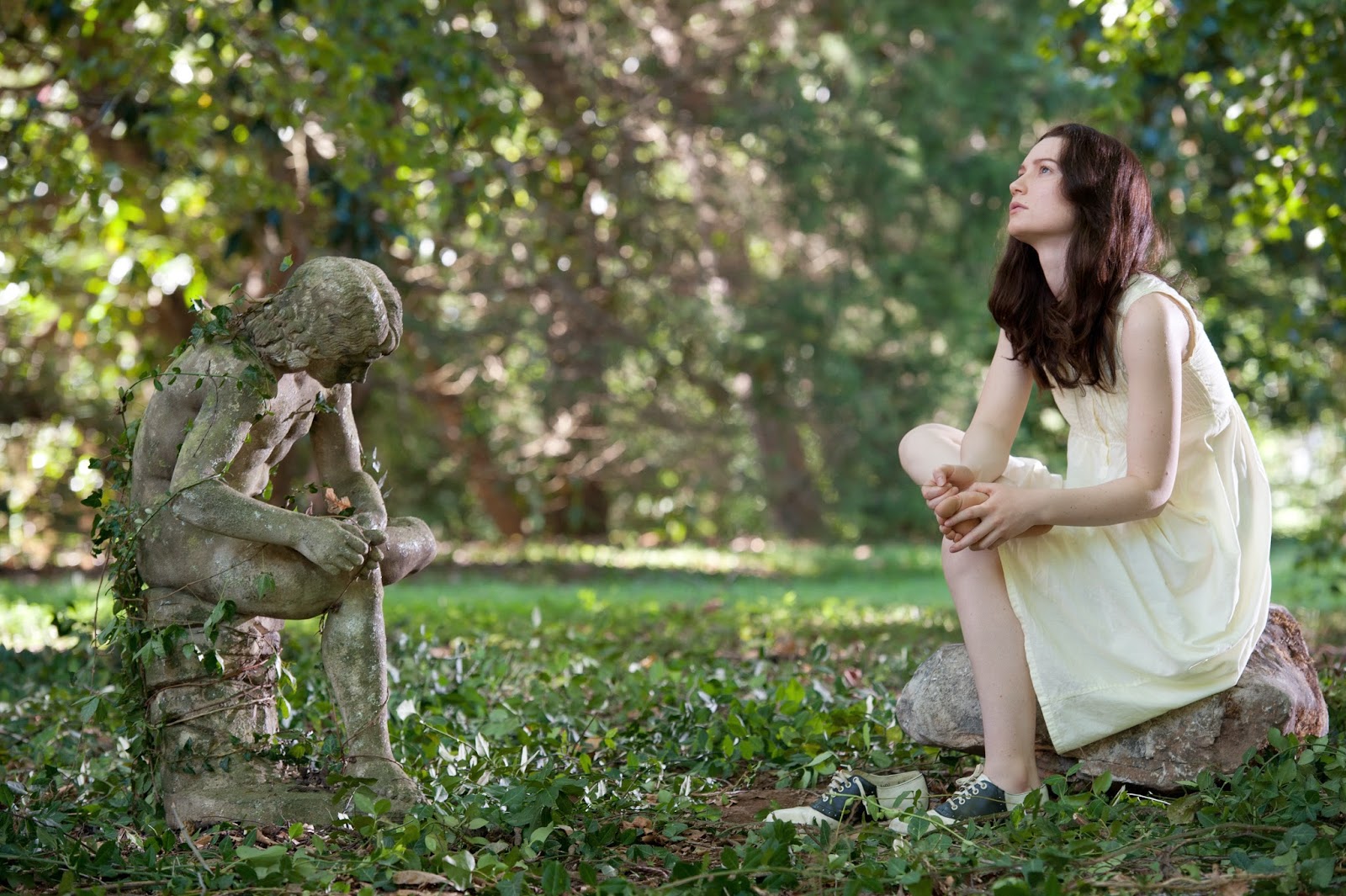









.jpg)









































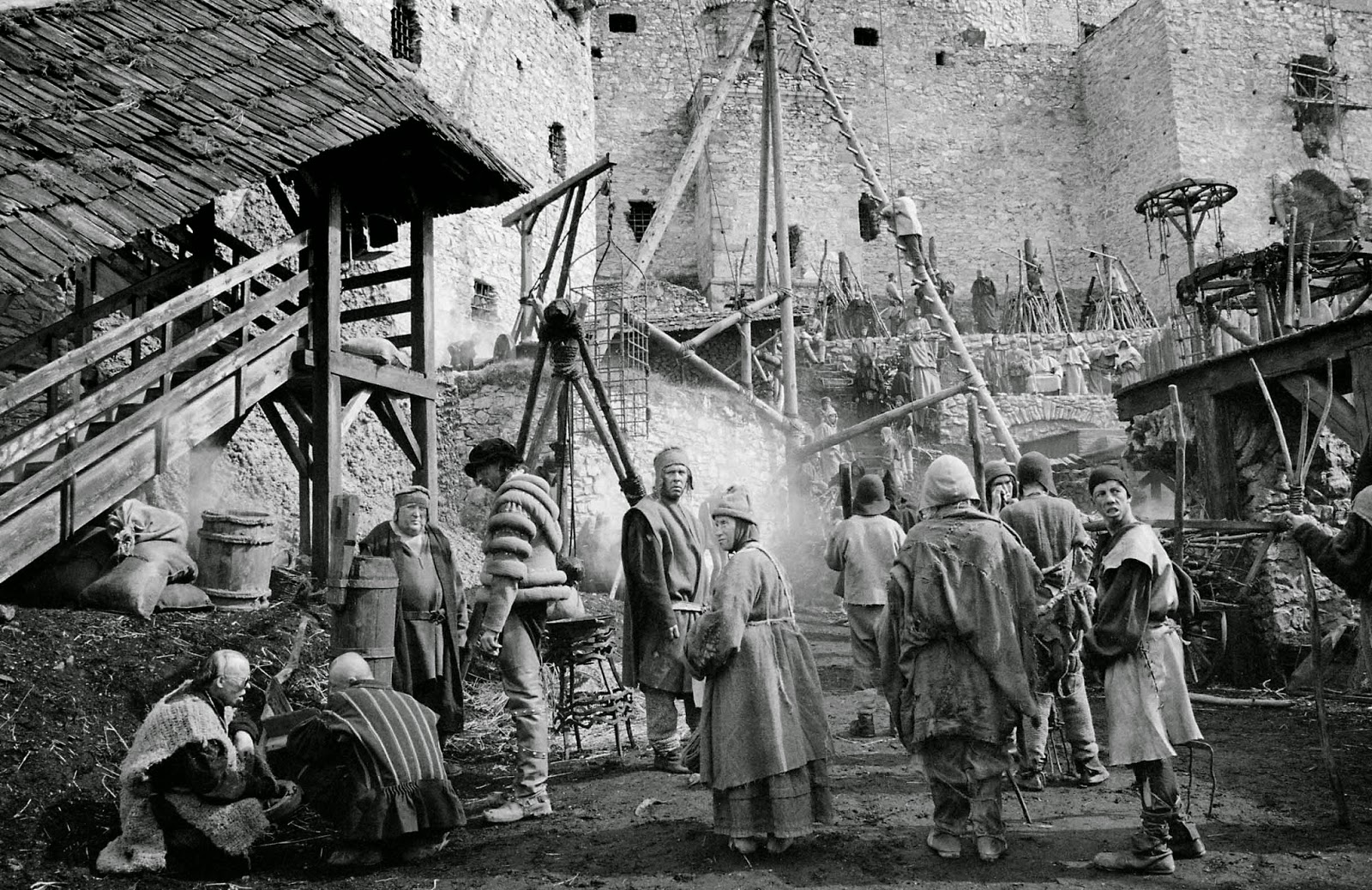






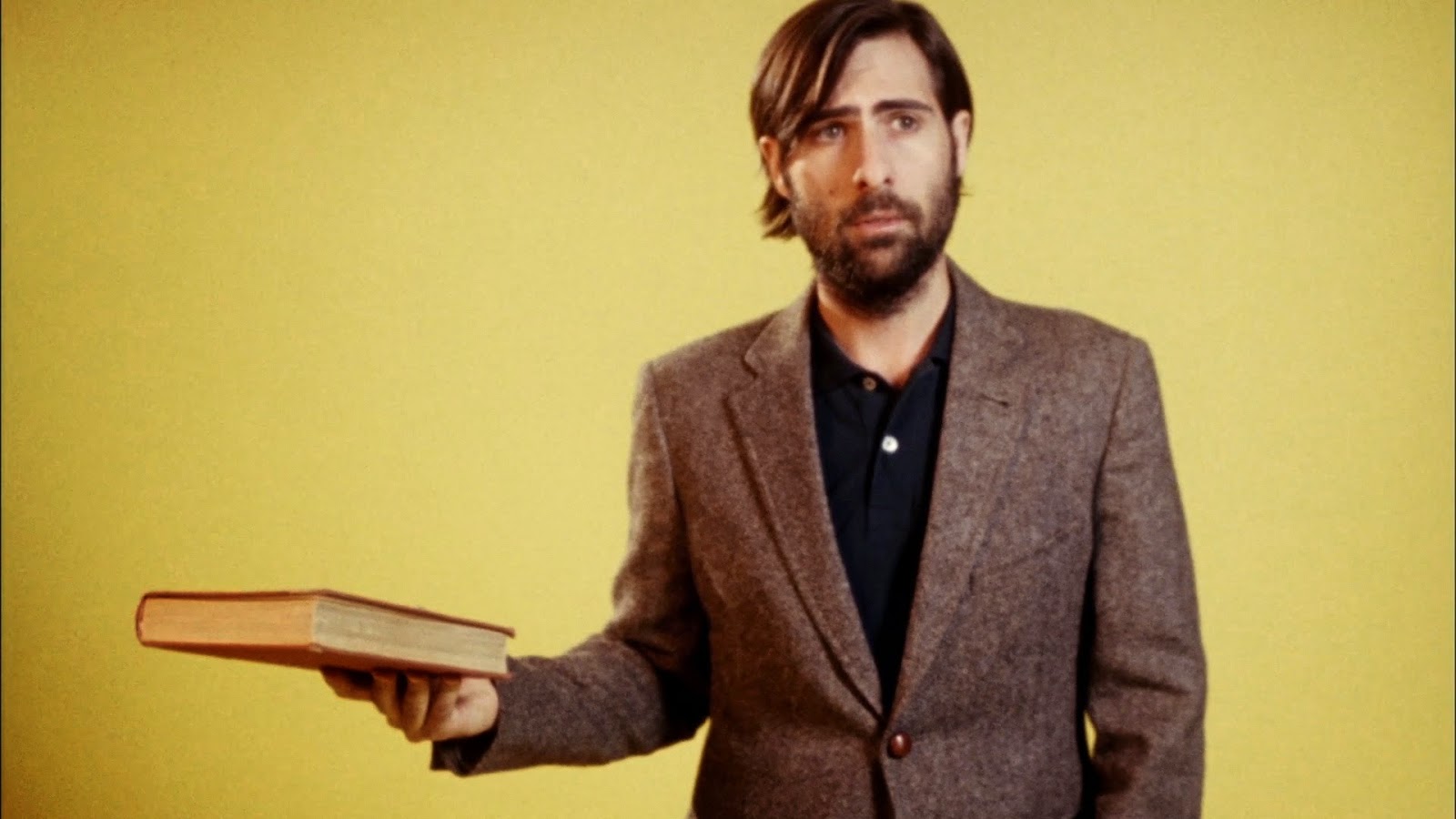








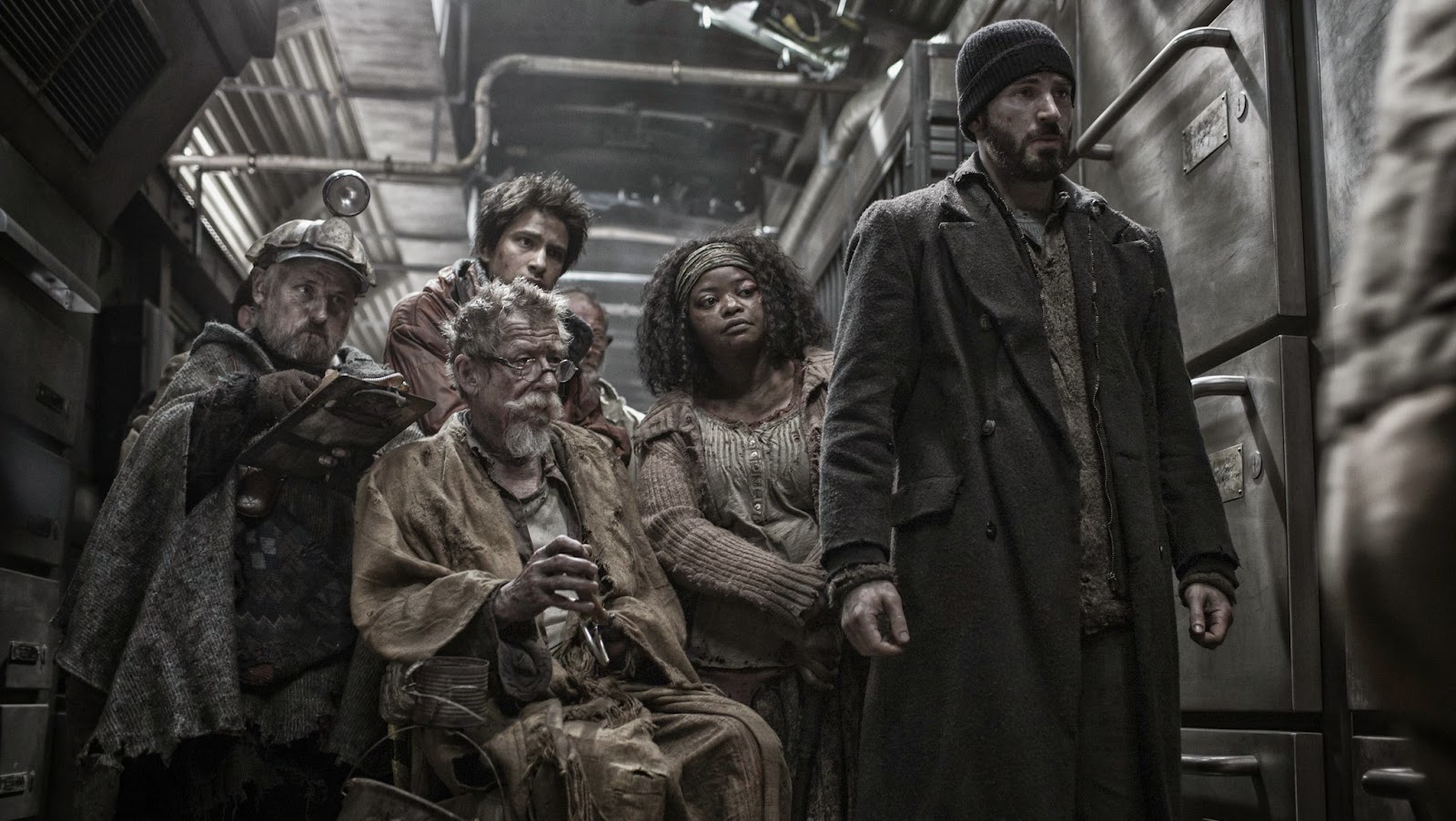




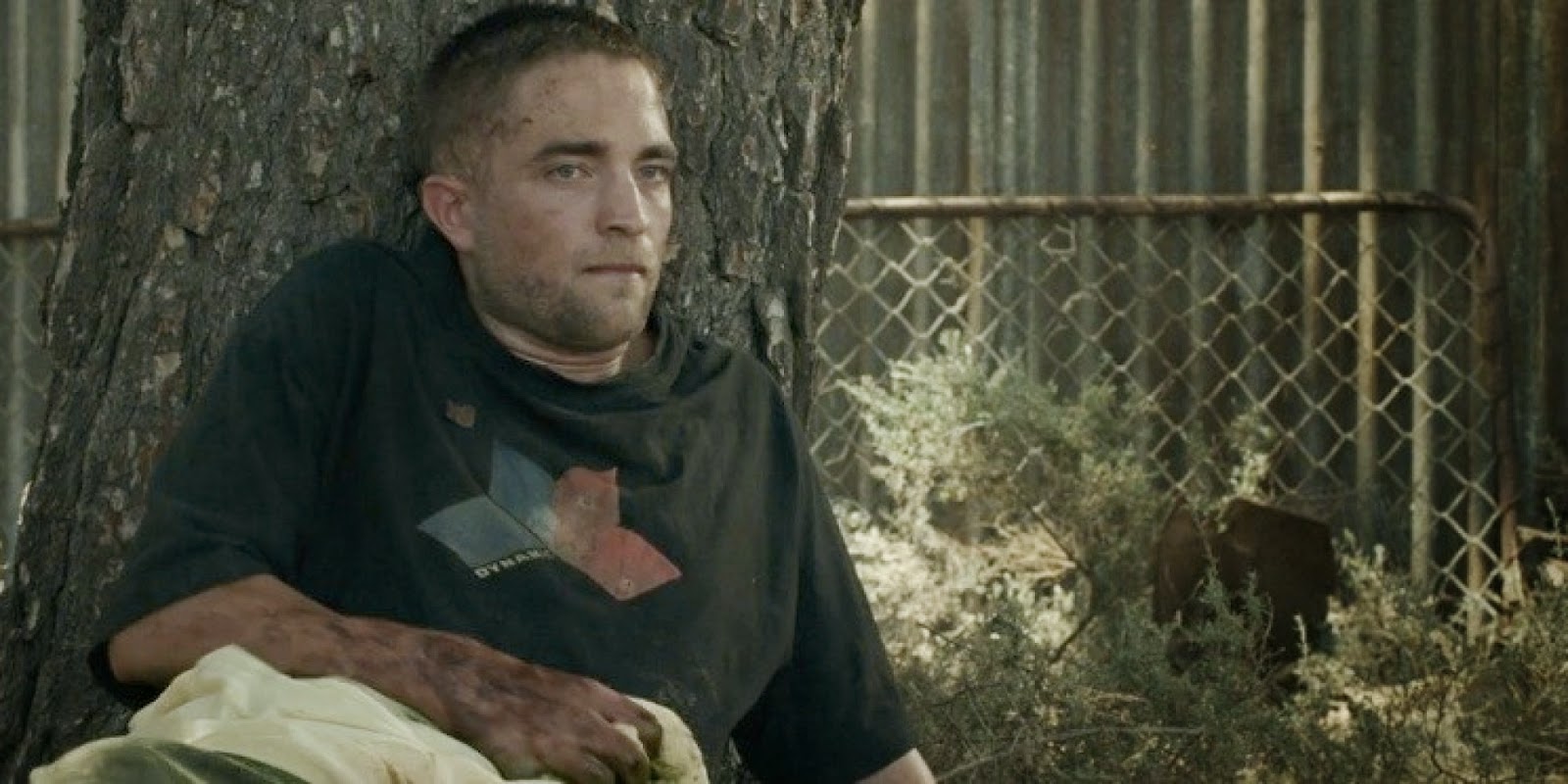
-large-picture.jpg)





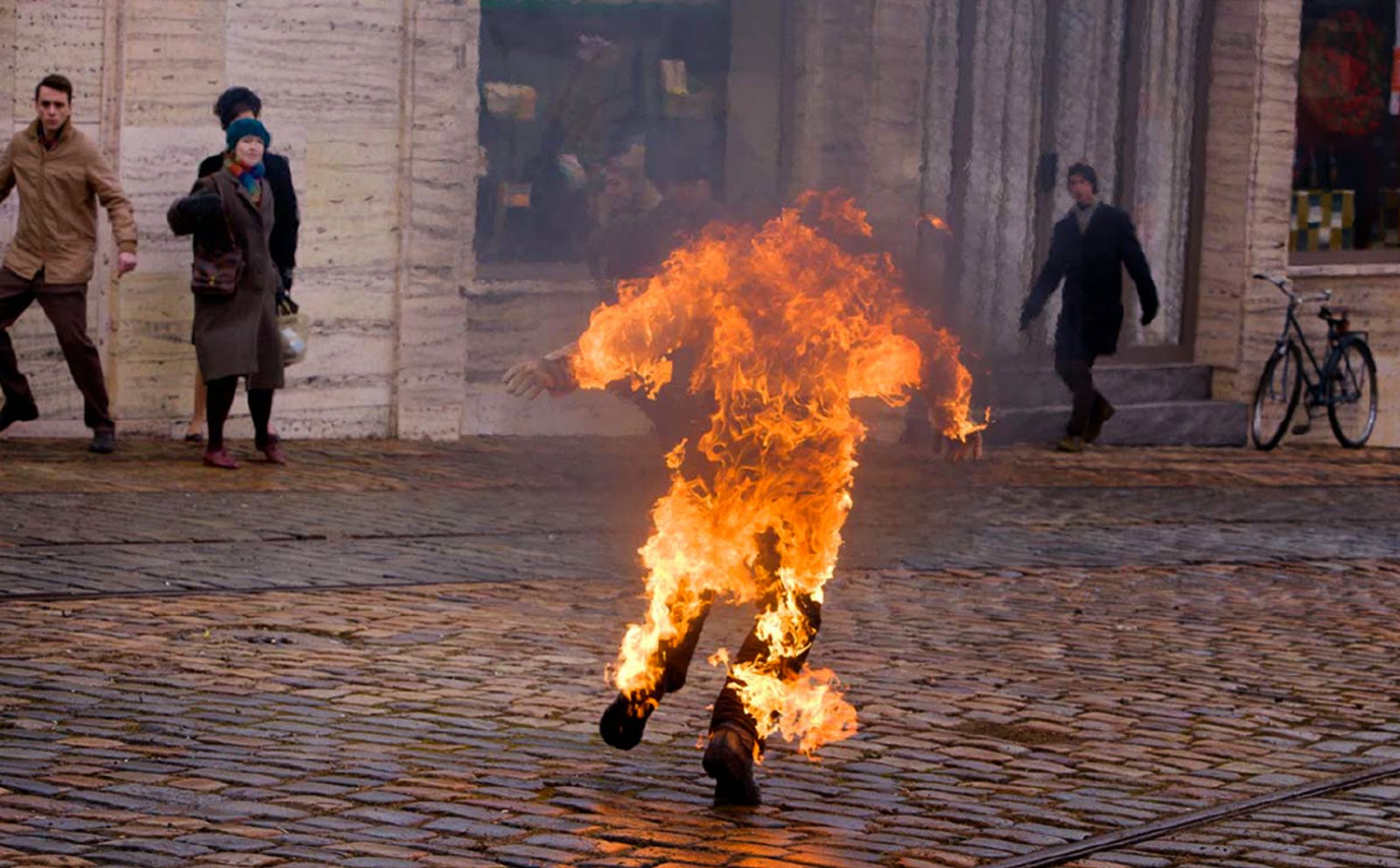



-large-picture.jpg)






-large-picture.jpg)










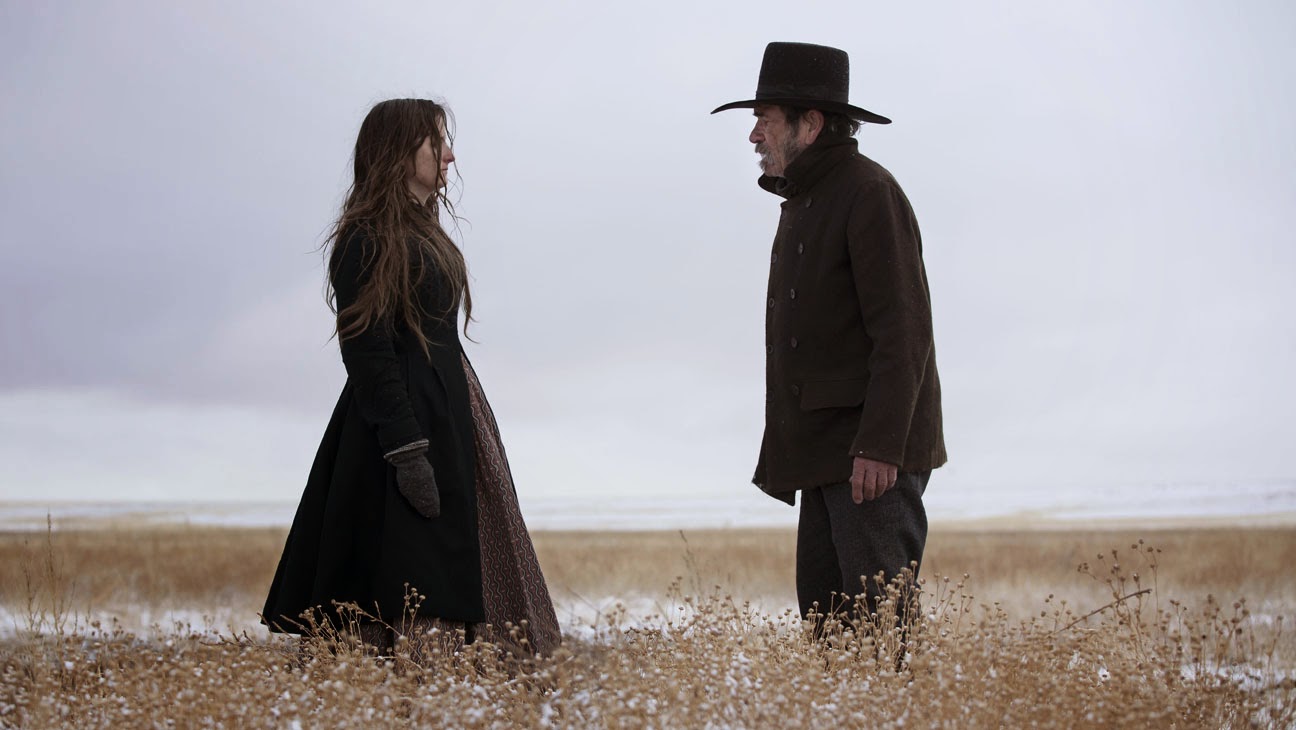


































-large-picture.jpg)













































